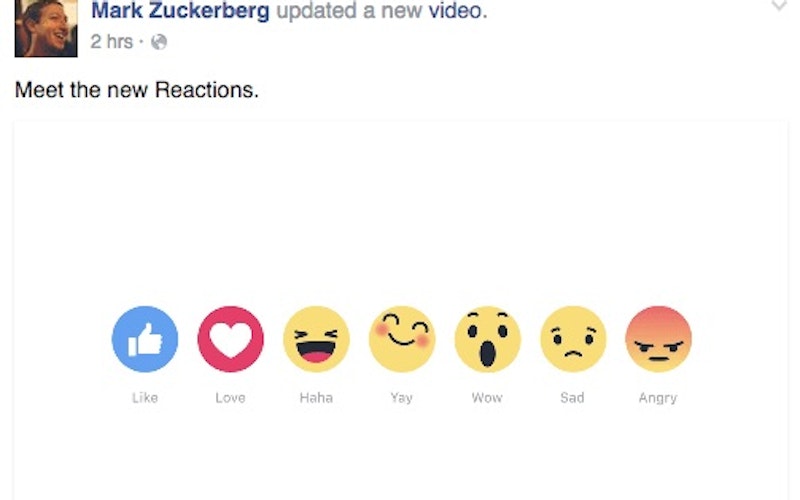
Online
Why Facebook reactions equal less meaningful interaction
It’s finally happened. The world now has a “dislike” button. Or at least the Mark Zuckerberg version of one, as Facebook now offers five emojis called reactions: yay, haha, wow, sad and angry. (You can still “like” a post, and now even “love” it.)
Months earlier, Zuckerberg had announced his intention to heed users’ requests for an alternative to the classic “like” button, just not in the way they expected. "What they really want is the ability to express empathy,” Zuckerberg said. “Not every moment is a good moment.”
Indeed, no one wants to “like” a friend’s status about losing a loved one or an article highlighting a tragedy or injustice. Yet we all feel compelled to respond — to show some amount of solidarity or, as Zuckerberg surmised, empathy.
So now we have these reactions to solve our apparent inability to relate to each other beyond elementary emotional expressions. It’s a huge win for Internet culture and social media and one more nail in the coffin of real human relationship.
What’s intriguing about this development is how it disregards another common Facebook function: commenting. Rather than taking the time to write a few words expressing our sadness or solidarity, we can now slap on an emoji. What used to be a simple gesture of appreciation — a “like” button — has broadened to better cover the bare minimum of human acknowledgement. Our sympathy can be measured in seconds.
Our sympathy can be measured in seconds.
The Christian life, however, is about embracing the awkward moments, not clicking them away. Paul makes it clear in Galatians that our responsibility surpasses mere sentiment when he tells us to carry each other’s burdens. In a sermon on that passage, Charles Spurgeon said, "We need to be schooled in this matter of showing sympathy with the sorrowful! No doubt it will drag our own spirits down if we really have fellowship with those whom God has sorely afflicted in mind, but we must be willing to be dragged down — it will do us good!"
Make no mistake, engaging suffering friends on Facebook is a commitment, and it will likely draw us into their own despair. But we cannot bear each other’s burdens from a distance, with a virtual gesture. We must step into the ugly picture of someone else’s life and love them despite the risk and effort that involves.
Sad emoticons may offer a tepid solidarity, but they're a paltry placeholder for active empathy, be that an encouraging comment or — gasp! — a real-life conversation over coffee. The latter is called doing relationship. And trying to figure out how to love each other in every season of life is called doing church. Despite technology’s ability to give us an out from doing either, we need to share more than just our Facebook reactions. We need to share our lives, with all their messiness, in full.
Topics: Online, Culture At Large, Science & Technology, Technology